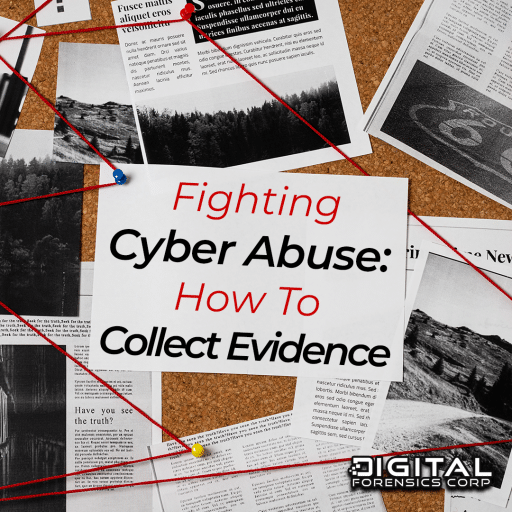Dealing with threats online is a terrifying experience, especially when it involves the potential exposure of private images. The thought of intimate photos or videos being shared without your consent can be incredibly stressful and leave you feeling vulnerable and helpless.
Unfortunately, the digital age has made it easier for malicious individuals, whether they are former partners, online acquaintances, or complete stranger, to threaten the release of sensitive content. This can take many forms, from revenge porn intended to shame and harass, to blackmail and sextortion where the goal is financial gain or further content.
While the specifics of each situation differ, the core fear remains the same: the violation of your privacy and the potential damage to your reputation and well-being. It’s crucial to remember that in many of these instances, the person making the threats is actually breaking the law. However, fear often prevents victims from coming forward.
This revised guide focuses specifically on what to do if someone is threatening to leak your pictures, providing actionable steps to protect yourself and regain control of the situation.
Understanding the Threat: Leak vs. Expose
While the original blog post discussed various forms of online threats under the umbrella of “exposure,” this guide specifically addresses the scenario where someone threatens to leak your pictures. This includes:
- Revenge Porn: An ex-partner or someone you know threatens or actually shares intimate images or videos without your consent, often with the intent to shame, harass, or control you.
- Blackmail/Sextortion: A scammer or other malicious actor threatens to release your private pictures unless you pay them money or comply with other demands.
- Sexploitation: A malicious actor threatens to release your sexual content unless you provide them with more content.
The objective in these situations is often to exploit the sensitive nature of the material to intimidate you into submission.
How to Stay Safe Online (Preventative Measures)
While you can’t always predict someone’s malicious intent, taking proactive steps can significantly reduce your risk of becoming a target:
- Be Cautious About Sharing: Think carefully before sending any intimate photos or videos, even to someone you trust. Once it’s out of your control, it can be saved and shared without your knowledge.
- Secure Your Accounts: Implement strong, unique passwords for all your online accounts (social media, dating apps, email, etc.). Enable two-factor authentication whenever possible for an extra layer of security.
- Be Wary of Strangers Online: Be cautious about connecting with people you don’t know in real life, especially on dating apps and social media. Be wary of requests to move conversations to less secure platforms or to share personal or intimate details quickly.
- Trust Your Gut: If a situation feels uncomfortable or suspicious, it likely is. Don’t feel pressured to do anything you’re not comfortable with.

What To Do if Someone Is Threatening To Leak Your Pictures
If you find yourself in the distressing situation where someone is threatening to leak your pictures, taking the right steps immediately is crucial. Here’s what you should do:
Don’t Engage:
It’s vital to stop all communication with the person making the threats. Responding, arguing, or trying to reason with them can escalate the situation and give them more power. They may try various tactics to provoke a reaction, but silence often removes their leverage. Block their phone number, email address, and social media accounts to prevent further contact and the temptation to reply. Do not negotiate or pay any demands. This will likely encourage them to continue their attempts.
Document Everything:
Carefully document every interaction and threat. Take screenshots of all messages, including dates, times, and the content of the threats. Save any accompanying images or videos they may have sent as proof. If any communication happened verbally, write down a detailed account of what was said, when, and where. This documentation will be crucial if you decide to involve law enforcement or other authorities. Organize these records chronologically and keep them in a secure place.
Secure Your Online Presence:
Even if the threat doesn’t involve hacking your accounts directly, it’s a good time to bolster your online security:
- Change All Passwords: Update the passwords for all your online accounts, especially those where the sensitive material might have originated or where the threats are occurring. Choose strong, unique passwords that are at least 12 characters long and include a mix of uppercase and lowercase letters, numbers, and symbols.
- Enable Two-Factor Authentication (2FA): Activate 2FA on all accounts that offer it. This adds an extra layer of security, requiring a second verification step (usually a code sent to your phone or email) before anyone can access your account, even if they have your password.
- Review Privacy Settings: Check the privacy settings on your social media profiles and other online platforms. Limit who can see your posts and personal information.
Contact Authorities:
This is a critical step. The person threatening to leak your pictures may be breaking the law, and involving the authorities can help stop the harassment and potentially lead to prosecution.
- Local Law Enforcement: Contact your local police department. They may have a cybercrime unit or officers trained to handle online harassment and extortion.
- Federal Bureau of Investigation (FBI): The FBI investigates cases of sextortion, online blackmail, and interstate cyberstalking. You can find contact information for your local FBI field office online.
- National Center for Missing and Exploited Children (NCMEC): While their focus is on child exploitation, they also have resources and can provide guidance in cases involving the non-consensual sharing of intimate images, regardless of the victim’s age.
- State Attorney General’s Office: Your state’s Attorney General may have resources and divisions dedicated to cybercrime and consumer protection.
When you contact authorities, provide them with all the documentation you have gathered.
Seek Support:
Dealing with these types of threats can be emotionally devastating. Reach out to trusted friends, family members, or a therapist for support. Sharing your burden with someone you trust can provide comfort and help you cope with the stress and anxiety. There are also support organizations that can offer guidance and resources for victims of online harassment and abuse.
Taking Back Control:
Being threatened with the release of your private pictures is a serious violation. Remember that you are not alone, and there are steps you can take to protect yourself and seek justice. By not engaging, documenting everything, securing your online presence, and contacting the authorities, you can take back control of the situation and work towards stopping the harassment. Don’t let fear silence you – help is available.
Sources:
- What To Do if You’re the Target of Revenge Porn | Federal Trade Commission
- An Update on the Legal Landscape of Revenge Porn | National Association of Attorneys General
- Key findings about online dating in the U.S. | Pew Research
- How to create strong passwords | Google
- Victim Services | FBI
DISCLAIMER: THIS POST IS FOR INFORMATIONAL PURPOSES ONLY AND IS NOT TO BE CONSIDERED LEGAL ADVICE ON ANY SUBJECT MATTER. DIGITAL FORENSICS CORP. IS NOT A LAWFIRM AND DOES NOT PROVIDE LEGAL ADVICE OR SERVICES. By viewing posts, the reader understands there is no attorney-client relationship, the post should not be used as a substitute for legal advice from a licensed professional attorney, and readers are urged to consult their own legal counsel on any specific legal questions concerning a specific situation.







